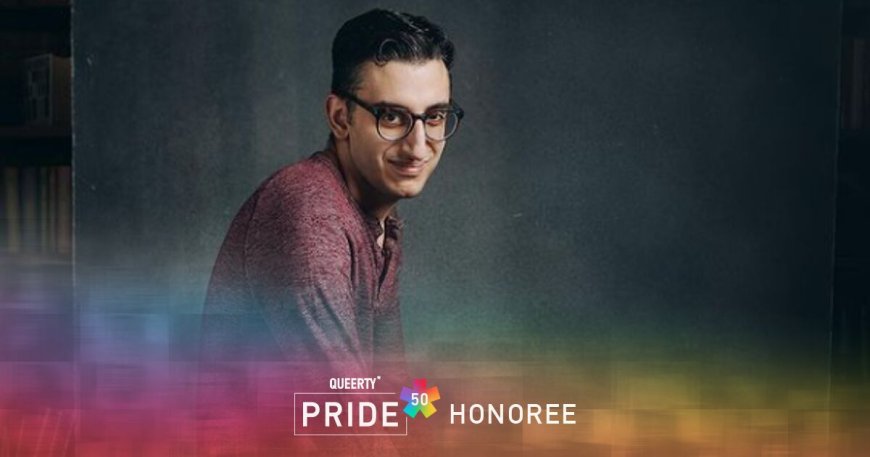Ryan J. Haddad is making theater more gay and disabled, and we love him for it
The openly gay and disabled actor and playwright always knew he was meant to be a star.

If you need a reminder that disabled people are hot, look no further than Ryan J. Haddad, who we are proud to include on this year’s Pride50.
The openly gay and disabled actor and playwright – who you may recognize from Ryan Murphy’s The Politician or from his recent, critically acclaimed off-Broadway show, Dark Disabled Stories – always knew he was meant to be a star.
“I think, as a kid, whether it was from ego, or stubbornness, or pompousness or whatever, I was like, ‘I’m a star, I’m a star, I’m gonna be a star,’ he told American Theater back in February.
There was just one little problem: he didn’t quite know how he was going to become one.
“I didn’t know how one made a career in New York in the professional performing arts,” he told Playbill. “I didn’t come from a family that had any sort of performing arts background at all… And then you add the layer of being disabled. And, you know, in my true youth, it didn’t dawn on me that that was going to create another barrier to entering [the performing arts].”
It wasn’t until he got to college, and found himself struggling to get roles, that it dawned on him.
“If I want to be successful at the thing I’ve dreamed at forever and ever, I have to harness my own story and my own work, and I need to showcase myself,” he said.
And showcase himself he has, in spades.
In February, Ryan made his off-Broadway playwriting debut with the “triumphant” Dark Disabled Stories – an autobiographical play featuring vignettes about the strangers he’s encountered “while navigating a city (and a world) not built for his walker and cerebral palsy.”
The show co-starred a rock-solid disabled cast, including Dickie Hearts (Tales of the City) and audio describer Alejandra Ospina, and was made with accessibility in mind: American Sign Language, captioning, and audio description was part of every performance – a major feat for theater.
Another feat was the play’s unflinching portrayal of disability – something Ryan purposely didn’t shy away from. “I want(ed) to expose some really hard truths and not have to sugarcoat,” Haddad told Them when asked about writing Dark Disabled Stories.
One way he did this was through the use of humor.
“I think the reason that disabled artists tend to use humor is because the world already sees us as depressing, so we try to push against that,” Haddad told the pub. “If we don’t try to reclaim the moment something bad happens, it veers into this narrative of pity.”
At the same time, Ryan knows all too well the importance of disability representation in the media, and the need for it.
When asked about the state of disability representation in the media by Playbill, Ryan responded unapologetically.
“There aren’t enough roles written for the disabled: There aren’t enough disabled characters written to be played by disabled actors,” he said. “That’s number one. Number two is that sometimes when there are roles written, that are disabled characters, they go to non-disabled famous people.
And, number three is, wouldn’t it be nice if we had the opportunity to play roles that weren’t written immediately with disability in mind—we were just seen as our whole selves, and could inhabit any role, in any sort of community or circumstance, even though disability wasn’t immediately called for?”
It’s a great question, and if Ryan has his way, we’re sure we’ll be seeing a lot more diversity in the way disability is written about and portrayed in Hollywood.
As we mentioned, it’s an honor to include Ryan on Queerty’s Pride50 this year. His ability to tell such personal stories with humor, heart, and sass – all while shining a light on disability in a relatable way – makes him the ultimate champion for millions. He is a true testament that you too can be disabled and a star.
Now, someone give him a role on Broadway, stat!

 Mark
Mark 





